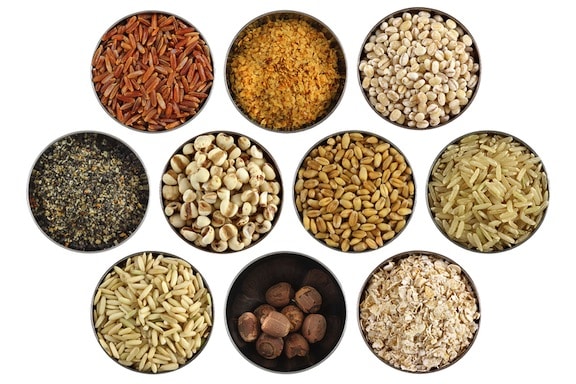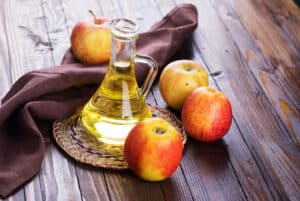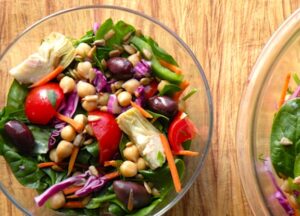From the book Vegan for Her: The Woman’s Guide to Being Healthy and Fit on a Plant-Based Diet* by Virginia Messina and JL Fields. Excerpted by arrangement with Da Capo Lifelong, a member of the Perseus Books Group. Copyright © 2013. Public health experts assess weight status using the body mass index (BMI), which measures body weight in relation to height. It doesn’t consider how much muscle or fat you have—just how much you weigh. It also doesn’t tell us anything about someone’s health since it measures only size. So BMI is not useful for individuals, but it’s used as a fast and inexpensive way to look for trends in populations.
On average, vegans have a lower BMI than either meat-eaters or vegetarians and they also have less body fat.This doesn’t mean that every vegan is thin, and in fact that’s far from the truth. It also doesn’t mean that adopting a vegan diet will automatically result in weight loss.
It’s possible, however, that vegans are at lower risk for weight gain and that a vegan diet may have some advantages for weight loss management. Replacing animal foods with plant foods will automatically raise your fiber intake, for example, which could be important for weight loss. Vegan diets are also typically somewhat lower in fat than diets built around animal foods, but it’s not clear how much this matters. There is little evidence that higher-fat diets are the cause of obesity. The lower glycemic index of vegan diets that are built around slow carbs may be more important since there is some (although very conflicting) evidence that diets with a high glycemic index promote obesity.
Other possible explanations for benefits of eating more plant foods are pretty intriguing. For example, all people have colonies of bacteria living in their colon, but the type of bacteria varies depending on diet. Because of effects on metabolism, higher levels of the bacteria that tend to take up residence in vegetarian colons may be associated with lower weight. Higher intake of fruits and vegetables might also help vegans avoid weight gain. These foods have bulk and volume because of their fiber and water content, which contributes to a feeling of fullness. Their rich phytochemical content could help with weight control, too. For example, the compound resveratrol, which is found in red grapes, grape juice, red wine, and peanuts, might increase activity of enzymes that induce fat breakdown. Compounds in apricots, green tea, and chocolate have been linked to lower body weight and inhibition of fat formation. Capsaicin, the chemical that gives red peppers their hotness, may increase energy expenditure.
These are all new areas of research, and it’s not likely that eating more phytochemicals will cause the pounds to start melting off. But, they may help to give vegans a little bit of an edge in preventing weight gain—and, these compounds also have a multitude of health benefits.
- Read more about plant-based nutrition on VegKitchen's Nutrition page.
- Read Virginia Messina's post on Planning Healthy Vegan Diets.
Virginia Messina, MPH, RD is a dietitian and public health nutritionist specializing in vegan nutrition. She is the author of many books and co-author of Vegan for Life, a comprehensive guide to vegan nutrition. She writes about a variety of issues related to health and animal rights on her blog The Vegan RD.
JL Fields is a vegan lifestyle coach, post-40 athlete, and noted food blogger. Visit her at JL Goes Vegan.
*This post contains affiliate links. If the product is purchased by linking through this review, VegKitchen receives a modest commission, which helps maintain our site and helps it to continue growing!







Comments
No Comments